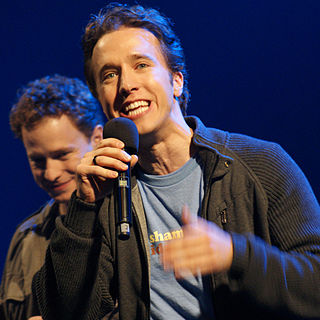A Quote by Craig Kielburger
Service learning connects classroom studies to real-world issues, with hands-on activities and problem solving. Youth can study biology and ecology by testing the water in their own community; or learn about statistics, calculating the food supply and usage at the local food bank.
Related Quotes
Anybody interested in solving, rather than profiting from, the problems of food production and distribution will see that in the long run the safest food supply is a local food supply, not a supply that is dependent on a global economy. Nations and regions within nations must be left free and should be encouraged to develop the local food economies that best suit local needs and local conditions.
Service-learning is a particularly fertile way of involving young people in community service, because it ties helping others to what they are learning in the classroom. It enables them to apply academic disciplines to practical, everyday problems. In the process, it provides a compelling answer to the adolescent's perennial question, 'Why do I need to learn this stuff?
I think our former first lady said it last month in one of her first speeches since leaving the White House, I think I'm getting the quote nearly right- "Who could possibly be against feeding children wholesome, good food?" Well, it turns out there are people who are against feeding children wholesome good food and there are people who are against solving our homelessness problem, they're against solving our food security issues and by and along political lines.
Every child is born not only with a stomach that has to be catered to, it is also endowed with two hands which can work and produce the food for the stomach. The hands have to be given the strength and skill; they have to learn the lesson of self-reliance. They should never be lazy or slothful. Then, there can be no deficiency in food and no problem of underfeeding.
I think as individuals, people overrate the virtues of local food. Most of the energy consumption in our food system is not caused by transportation. Sometimes local food is more energy efficient. But often it's not. The strongest case for locavorism is to eat less that's flown on planes, and not to worry about boats.



































